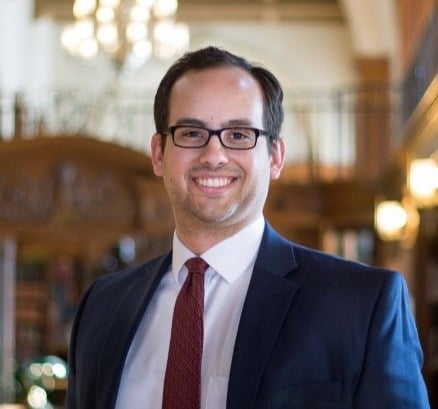As a doctor, you’re already familiar with the importance of estate planning. This is because most of the patients we see lack an advanced directive to inform their care when they’re at their sickest. Their families are left wondering, should they be stepped up to a ventilator, or switched to comfort care? Effective advanced directives address these questions and more.
But there’s a lot more to estate planning than advanced directives. Basic estate planning can help give physicians peace of mind that, in the event of the unthinkable, their family’s financial needs will still be met. It can also save families from the headaches of probate court and family disputes about who gets Grandma’s pearls.
What do I need to know about estate planning?
Estate planning encompasses the group of tasks and documents needed to manage your affairs after your death or if you become incapacitated. It ranges from things like advanced directives to establishing a trust to manage your assets.
As a resident, I get it. You have very little free time, and estate planning is the last thing on your mind. But the earlier in your career that you start, the quicker it’ll be.
What are the estate planning basics?
Estate planning looks a little different for everyone, but here’s some of the key planning documents:
- Wills and trusts. A will spells out plans to give away your assets. A trust lets you to choose someone to manage those assets for another person. For example, a close friend could manage your money until your kids are old enough not to spend it all on poptarts.
- Letter of intent. This letter helps the executor of your estate and your beneficiaries understand your last wishes. It might include extra details that aren’t in your will, like what you’d want for a funeral.
- Advanced directives. This includes a living will, power of attorney, and health care proxy. Each of these comes into play if you become incapacitated. A living will spells out the types of medical treatment you’d want. A durable power of attorney is a person who makes financial decisions on your behalf. Finally, a health care proxy is someone who makes medical decisions for you.
- Beneficiary designations. For assets not required to be listed in a will, like those in a 401(k), you’ll need to name a beneficiary and a contingent. Tip: They need to be at least 21!
- Guardianship designations. Although sometimes included in a will or trust, you might need to create a separate doc to choose a guardian for your kids if both parents were to pass away.
What are the main steps in estate planning for doctors?
The financial realities of being a doctor make estate planning especially important. For example, most physicians carry a very high debt load even well into their careers. We also face high tax rates for our work, and even if we do a perfect job with every patient, there’s also the constant possibility of a malpractice claim, which can jack up the cost of insurance.
Estate planning doesn’t have to be super complicated, though. Follow these basic steps to help protect your family’s financial future:
- Find an attorney you trust to guide you through the process. Make clear your expectations for your time commitment—minimal!
- Make a will to lay out a clear plan for who gets your assets after your death and under what conditions.
- Set up a living will to ensure that your wishes for your medical care are honored in the event of your incapacitation. If you don’t want your spouse to have to make your medical decisions, appoint a health care proxy, too. Finally, consider whether you need a durable power of attorney.
- Create a net worth statement that lists your assets and liabilities. Include things like your bank accounts, any life insurance policies, stocks, and mortgages.
- Establish a revocable trust to skip the probate process and ensure your assets go toward caring for your family right away. Be aware, though, that a revocable trust generally does not protect assets from malpractice claims. Talk to your attorney about establishing an asset-protection trust to shield assets against those types of claims.
- Make other tactical decisions as needed, like buying life insurance or executing a post-nuptial agreement to keep your assets separate from your spouse’s. A pre- or post-nup can sometimes serve as an asset buffer in the event of a successful medmal case.
Lastly, make sure these documents are in a safe place that is known to someone you trust.
How much should estate planning cost?
Cost varies by location and the particulars of your situation. For example, it will be more expensive for a late-career physician in a city than for an early-career doc in the burbs. On average, though, good estate-planning attorneys charge about $250-350 per hour for this type of work. Expect to invest a few thousand dollars to get everything listed above done right.
I hope this information gets you thinking about estate planning. Keep in mind that many law offices offer a free consultation for stuff like this.




Leave a Comment
Related Articles